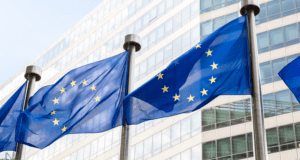A coalition of human rights organisations is asking European lawmakers to set strict rules for WhatsApp and Skype. The organisations believe that some countries in the EU are weakening privacy rights.
The coalition consists of thirty human rights organisations, including Amnesty International and Privacy International. The organisations are dissatisfied with the outcome of earlier negotiations between EU countries on European privacy regulations.
ePrivacy Regulation
Specifically, it concerns an ePrivacy Regulation that the EU voted on in February. The regulation would ensure that WhatsApp and Skype have to abide by the same rules as telecom providers, and the tracking of users for personalised ads is countered. The regulation was proposed by the European Commission back in 2017, but according to Reuters, several sticking points arose in the negotiations. These included disagreements on cookie rules, consent requirements and rules for detecting and removing child pornography.
Weakened clauses
According to the privacy groups, the countries in the EU have weakened some clauses that would protect internet users from cookies or other ways of being tracked on the internet. Such clauses had been proposed by European Union lawmakers as the very basis of the negotiations.
The group says European lawmakers should bring back the clauses, especially now that privacy has become an issue of paramount importance during the coronapandem. After all, people are much more engaged online in their everyday activities and exchanges.
Stoping data harvesting
“We have the opportunity to create an internet that better serves users by stopping built-in data harvesting and tracing methods,” Eva Simon, senior advocacy officer at the Civil Liberties Union for Europe (Liberties), said in a statement. “It’s important that the European Parliament realises it can stand up for people, and not defend the interests of the big tech platforms.”
Tip: Criticism of Irish privacy authority for slow GDPR action



















